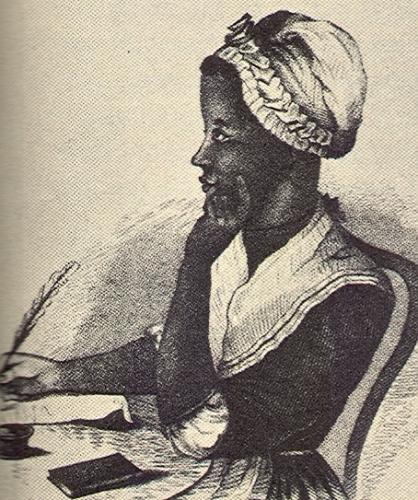 |
LITR 4231 Early American
Literature Sample Research Posts 2014 (research post assignment) Research Post 2 |
 |
Danielle Meza
18 April 2014
The Unrecognized Patriot
Benedict Arnold is known to the American people as the turncoat patriot
whom they associate with betrayal and disloyalty.
The average American knows little surrounding the life of Benedict
Arnold, excluding the fact that he later went on to exchange his allegiance to
the British during the American Revolution.
This realization leads me to investigate his life and the reasons for his
betrayal in order to discover whether the detestation associated with Benedict
Arnold is truly warranted or if it is a perpetuation of biased slandering.
Shortly after the American
Revolutionary War began, Benedict Arnold rushed to join the Continental Army.
He joined Ethan Allen and the Green
Mountain Boys. It was here that Benedict
Arnold became involved with the preparations for the siege on Fort Ticonderoga.
During battle, he received a gunshot
wound to his leg. In addition, Arnold
soon received word that his wife had died during his absence.
Despite his losses, he continued to
devise a way to hold their position. Throughout
the war, Arnold proved to be instrumental in countering the advances of the
British during many battles including the Battle of Saratoga, Lake Champlain,
and the Danbury raid.
Despite Arnold’s militaristic achievements, Congress frequently refused to
acknowledge him. Instead, he was
repeatedly overlooked for promotions. In
1777, Congress promoted five brigadiers to the position of major generals,
despite the fact that Arnold was older and more experienced.
It was only after the request by George Washington that Arnold agreed to
reenlist in the army. He served
under the command of General Horatio Gates.
Gates and Arnold shared in many disputes. The
two men held conflicting views on how to proceed with the war.
While Gates held a more precautious
vision towards the war, Arnold desired to advance their forces.
When Arnold led a victorious assault
against the British during the Battle of Bemis Heights, Gates stole most of the
credit. During battle, Arnold became
crippled after his horse was shot and crushed the same leg that had previously
been injured. As a form of compensation,
through the unrelenting petition of George Washington, Arnold was appointed
Governor of Philadelphia.
However, Arnold’s permanent injury only caused his bitterness from Congress’s
lack of respect to grow. Not long after
gaining his position he was accused of controversial business deals.
When asked, “Washington, himself
pronounced the charges ‘imprudent and improper’ and ‘peculiarly
reprehensible.’’” (“Benedict Arnold”). However,
he was eventually cleared of all but some of the more trivial charges.
Less than a year later, he began
engaging in negotiations with the British for the surrender of the American
Fort, West Point. It was not long before
his plans were found out and he fled to Britain before America could detain him.
Although Arnold joined the British for
respect, he never gained the full trust of Britain nor achieved, “the high
military commands he craved” (Wright 35).
Considering the sacrifices Arnold suffered during his service to America, it is
understandable why he grew frustrated in regards to America’s treatment of him.
His outstanding service during the war
remains impressive. However, this
does not excuse the fact that he ultimately betrayed the cause that he
sacrificed so much for. In pursuit
of the recognition he deserved, he ultimately forfeited his honor with the
result of never truly gaining what he truly desired.
I find it interesting that, as a man who contributed so much toward the
American Revolution, he is only remember for his final act of betrayal.
Benedict Arnold’s role in helping to
solidify America’s victory for independence is completely overshadowed by one of
his final acts during the war.
Works Cited
"Benedict Arnold." Ushistory.org. Independence Hall Association, n.d. Web. 20
Apr. 2014.
Wright, Esmond. "A Patriot For Whom?: BENEDICT ARNOLD AND THE LOYALISTS." History Today 36.10 (1986): 29. Academic Search Complete. Web. 20 Apr. 2014.
|
|
|
|

